Abstract
A total of 109 travelling people (people with a nomadic lifestyle), living on 8 separate sites in central and south Scotland, were examined for neutralizing antibodies to poliovirus types 1, 2, and 3. Of those studied, 10% had no detectable antibody to poliovirus type 3 while 7% had no antibody to type 1, the types most commonly associated with outbreaks of paralytic poliomyelitis. Only one subject, a child aged 9 years, had no detectable poliomyelitis antibody; he had no history of poliomyelitis immunization. The best protected groups of travellers were those located on sites with good facilities.
As far as poliomyelitis is concerned, we conclude that travelling people in Scotland who live on well equipped sites do not pose a hazard to nearby settled populations and, indeed, are no more vulnerable to infection than members of those communities.
Full text
PDF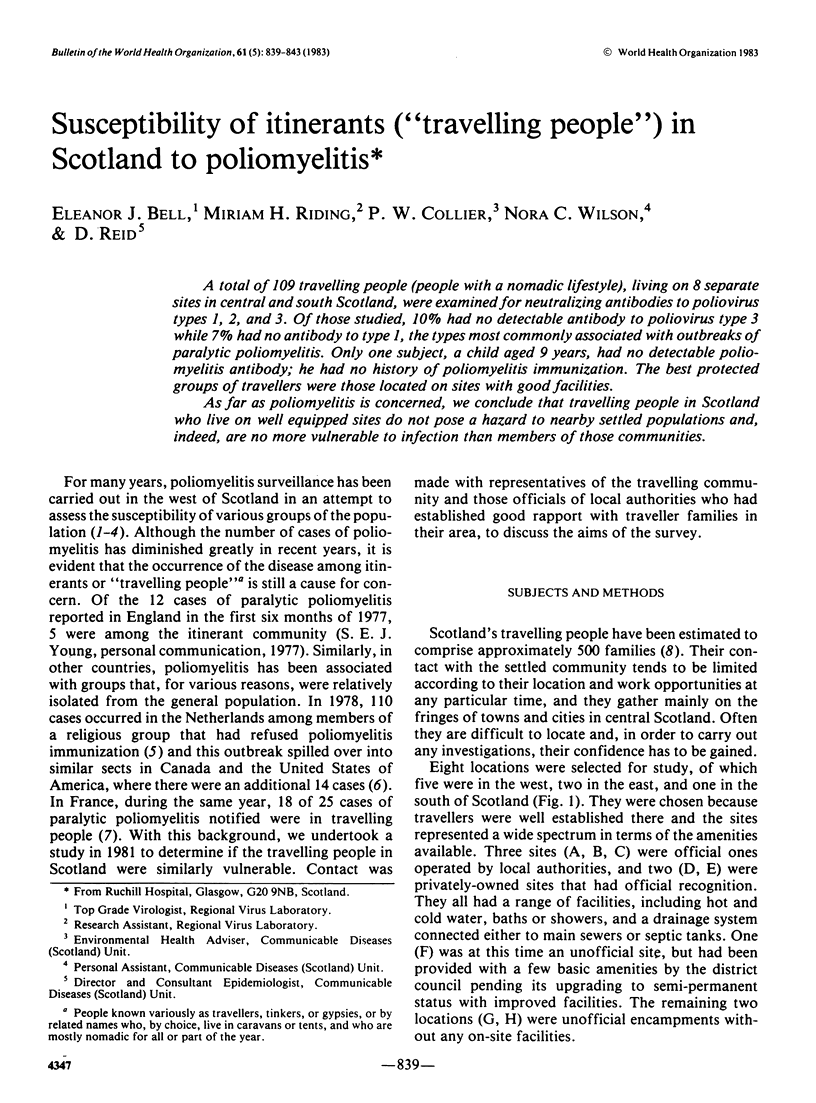
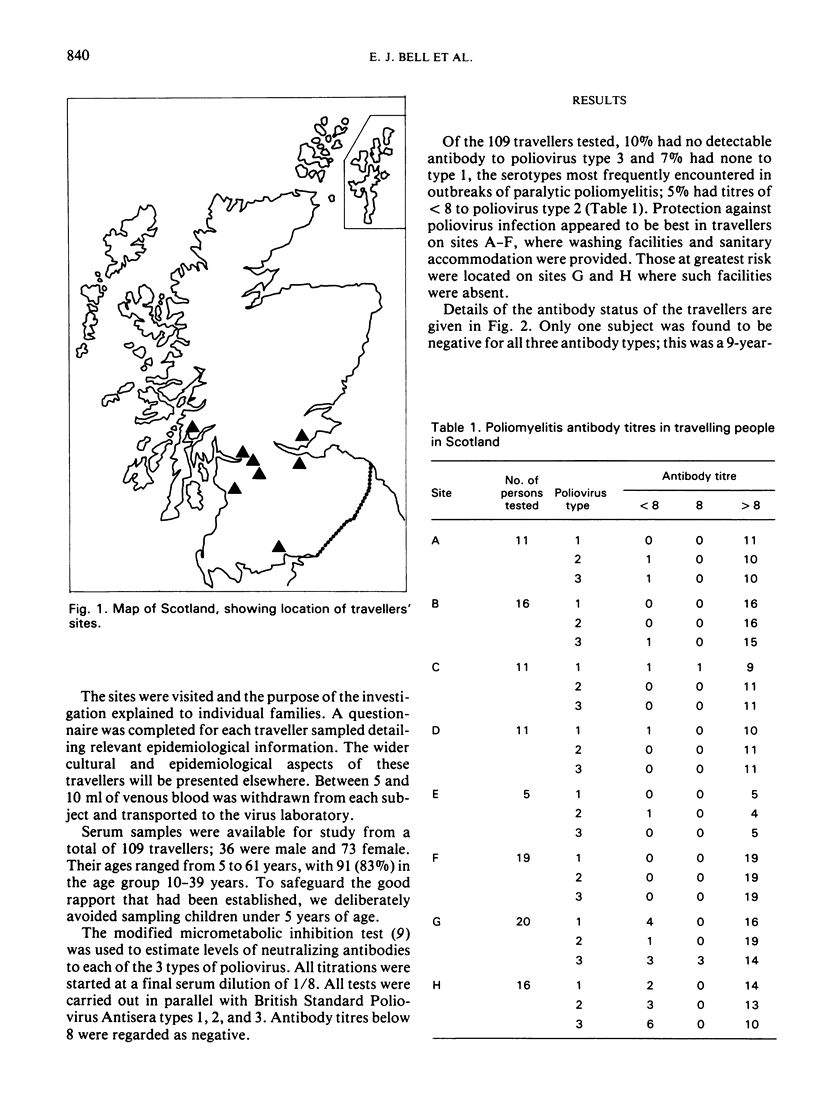
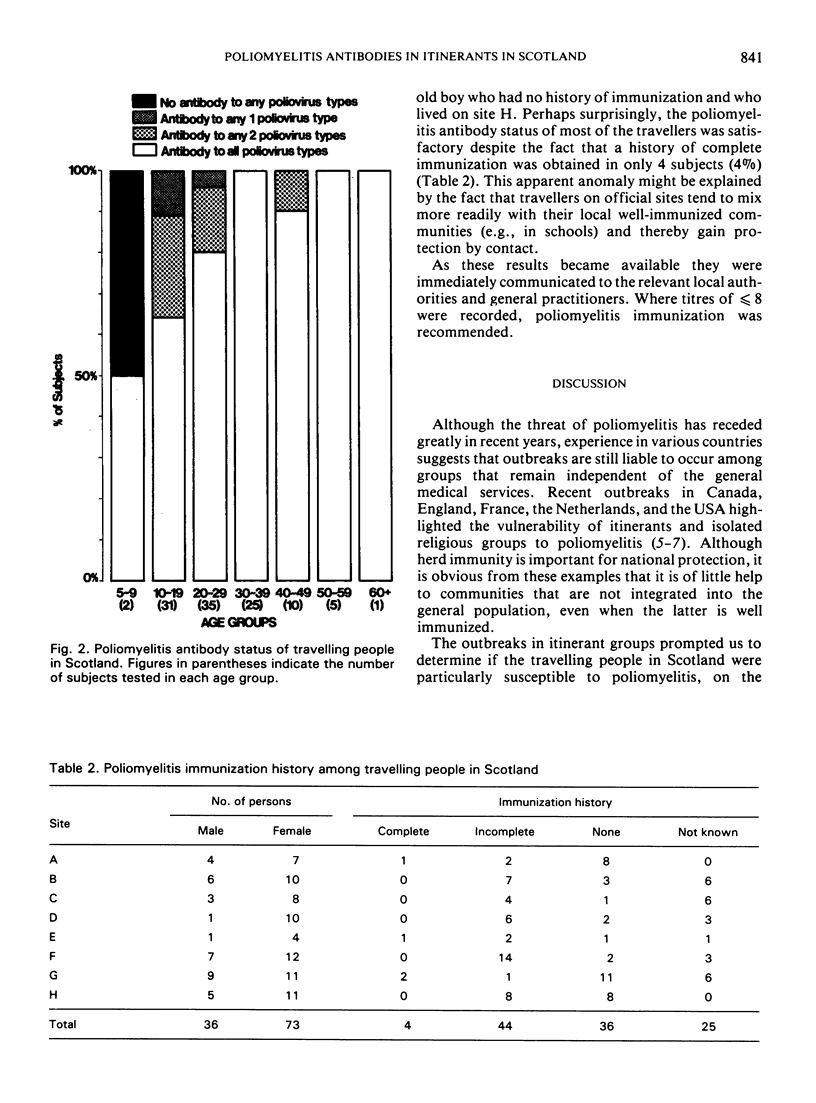
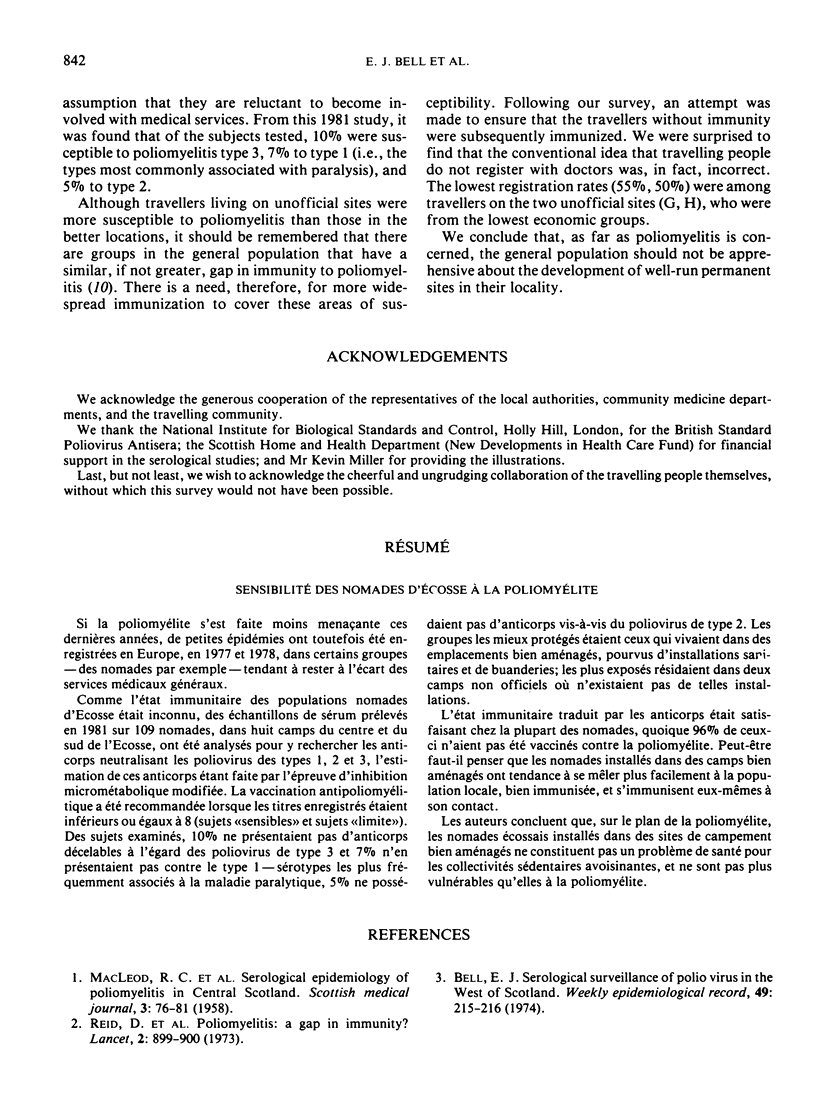
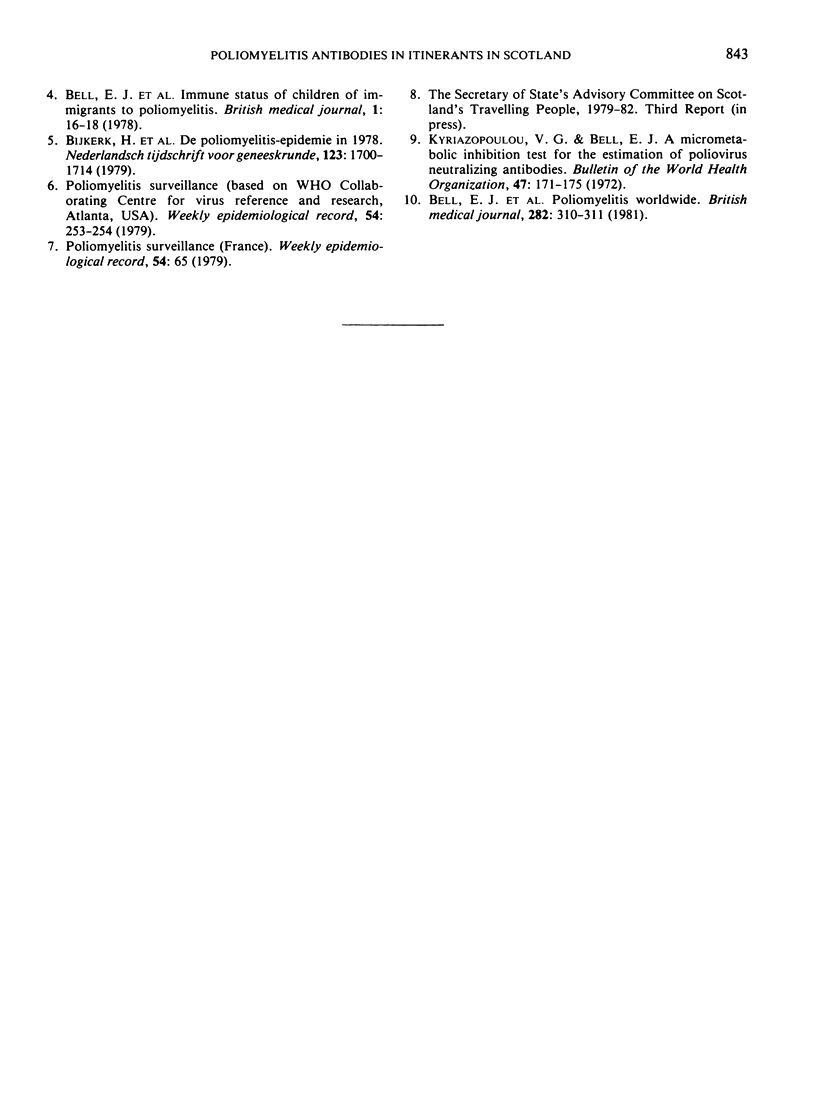
Selected References
These references are in PubMed. This may not be the complete list of references from this article.
- Bell E. J., McDaid R., Dewar R. D., Goel K. M., Reid D., Grist N. R. Immune status of children of immigrants to poliomyelitis. Br Med J. 1978 Jan 7;1(6104):16–18. doi: 10.1136/bmj.1.6104.16. [DOI] [PMC free article] [PubMed] [Google Scholar]
- Bijkerk H., Draaisma F. J., van der Gugten A. C., van Os M. De poliomyelitis-epidemie in 1978. Ned Tijdschr Geneeskd. 1979 Sep 23;123(39):1700–1714. [PubMed] [Google Scholar]
- Kyriazopoulou V. G., Bell E. J. A micrometabolic inhibition test for the estimation of poliovirus neutralizing antibodies. Bull World Health Organ. 1972;47(2):171–175. [PMC free article] [PubMed] [Google Scholar]
- MACLEOD R. C., MACGREGOR L. G., LARMINIE H. E., GRIST N. R. Serological epidemiology of poliomyelitis in Central Scotland. Scott Med J. 1958 Feb;3(2):76–81. doi: 10.1177/003693305800300202. [DOI] [PubMed] [Google Scholar]
- Reid D., Bell E. J., Grist N. R., Wilson T. S. Poliomyelitis: A gap in immunity? Lancet. 1973 Oct 20;2(7834):899–900. doi: 10.1016/s0140-6736(73)92022-9. [DOI] [PubMed] [Google Scholar]


